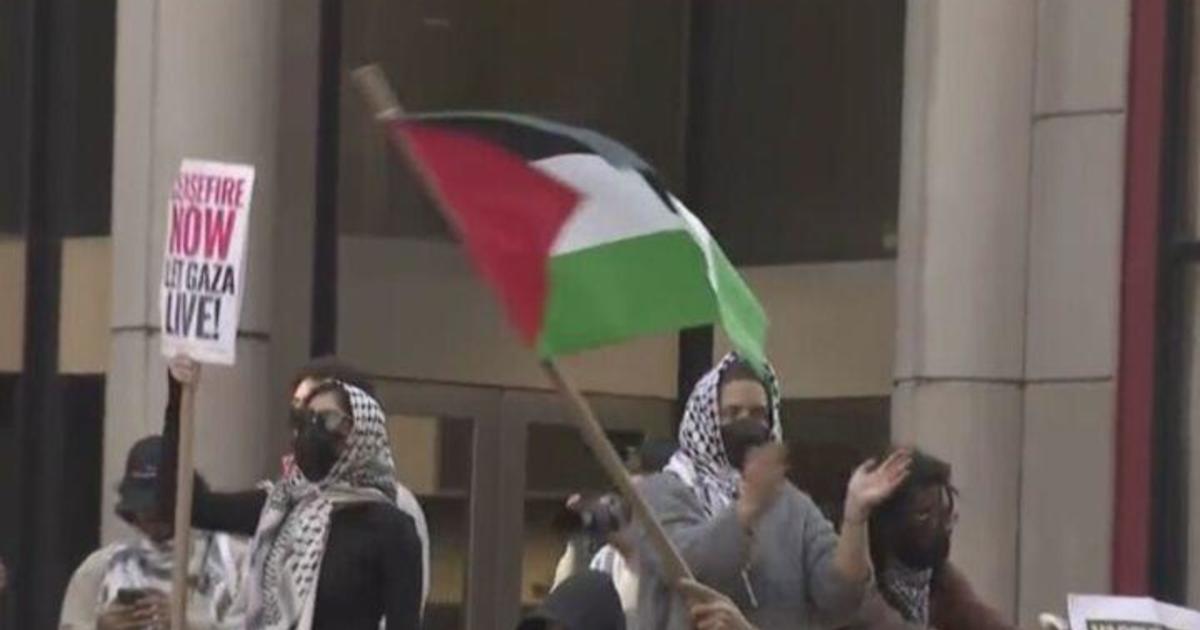City Considering Letting Social Workers Take Lead When NYPD Responds To Calls Involving People With Mental Illness
NEW YORK (CBSNewYork) -- Supporters of police reform say homeless outreach should not be the responsibility of the NYPD.
They also want social workers, not the police, to respond to calls about the mentally ill, CBS2'S Aundrea Cline-Thomas reported Monday.
NYPD officers said they knew Ricky Bellevue had a mental illness, but thought he posed a threat when they violently restrained him in Rockaway Beach.
One officer is accused of using an illegal chokehold and is facing criminal charges.
It comes as city leaders consider transferring the responsibility of responding to people with mental illness from police to social workers as part of broader reform efforts.
"My approach has to be one of understanding that I am not reasoning with a mind that is fully there," said Dr. Claire Green-Forde, the executive director of New York City's chapter of the National Association of Social Workers.
GEORGE FLOYD PROTESTS
- CBS2's Maurice DuBois, Documentary Filmmaker Marshall Curry Discuss Where The Conversation About Race Goes From Here
- Public Advocate Jumaane Williams On What's Next With Race In America
- Having The Difficult But Important Conversation About Race
- How To Be A Part Of Making Change Beyond Protesting
- Schomburg Center Releases 'Black Liberation Reading List'
- Child Psychologist On Talking About Race & Activism
- Complete CBS2 Coverage
- More From Minneapolis
Green-Forde is a social worker who specializes in the intersection of behavioral health, criminal justice and social disparities, and said her training creates a fundamentally different approach to someone in crisis.
"The officer may think I need to restrain this person. I'm thinking immediately, 'Oh my God, this person is in distress. How do I help?'" Green-Forde said.
FLASHBACK: City Officials Unveil $37 Million Investment To Tackle Mental Illness In NYC
In 2018, the NYPD received 180,000 calls for emotionally disturbed people.
Every officer receives training on how to respond, but it's far less than social workers.
The Department does send out "co-response" teams that pairs a clinician with two officers. Dr. Green-Forde said it works best when the clinicians take the lead.
"If we have equitable authority and we have equitable ability to call decisions. I think that is also one we can make it a lot better," Green-Forde said.
For 30 years, Eugene, Ore., Cahoots Program has been a national model. An EMT is paired with a clinician. They answer 20% of 911 calls -- rarely require police backup -- and save the city money.
When asked what she thinks that could actually look like in a city this size, Green-Forde said, "I think we can be in a situation where not only are people seeing officers as less of a threat, but we're actually being able to partner hand in hand to support the needs of the community."
Which is the goal. But deep budget cuts may get in the way.
Data shows people with severe mental illnesses are 11 times more likely to be victims of violent crime.



